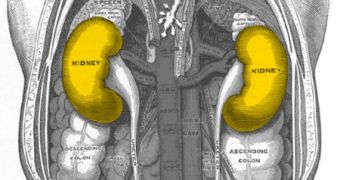Experts prove that inhibiting two proteins involved in protecting the body against cancer can lead to positive developments for regenerative medicine. They say that this procedure could set the foundation for new techniques of regenerating failing organs, or regrowing amputated limbs.
The research team, which was led by Stanford University expert Helen Blau, and scientist Jason Pomerantz, from the University of California in San Francisco (UCSF), says that the two proteins are known as ARF and Rb, respectively. The experts add that the former backs the latter in providing the body with a natural deterrent to the onset and development of cancer.
In a new series of experiments, the researchers demonstrated that ARF, the protein which plays a pivotal role in stopping the spread of tumors, is also involved in inhibiting regeneration in mammals, including humans. ARF also limits the ability of mature cells to divide and replicate, by supporting the actions of the protein Rb.
Details of the recent investigation appear in the August 6 issue of the esteemed scientific journal Cell Stem Cell. In the paper, the team details how inhibiting the expression of the two proteins allowed for mature muscle cells harvested from mice to proliferate in the lab. This does not take place normally, the investigators mention.
Unlike salamanders and zebrafish, humans and mammals generally cannot regrow limbs after they lose them. Amputated arms and legs don't grow back, whereas a salamander's tail does. The new research may help scientists gain some fresh insight into why this happens, Science News reports.
One of the most important findings was learning the fact that ARF acts as a back-up system for Rb. In creatures displaying amazing regenerative powers, this is not the case. However, in mammals, the system works flawlessly, and this prevents new limbs from growing, or damaged organs from regenerating.
Some experts say that this mechanism may have evolved in order to reduce the number of possible mutations that may affect developing cells. It is widely known that certain forms of cancer are caused by mutating cells. This is why molecular biologists and geneticists need to ensure that any future treatment based on the recent findings do not increase a person's risk of developing cancer.
But not everyone is convinced that the new findings are that groundbreaking. “Regeneration is an extremely complex process that I don’t think will boil down to just one cellular event or one molecular event,” argues Duke University Medical Center developmental biologist Kenneth Poss, who is also a Howard Hughes Medical Institute investigator.

 14 DAY TRIAL //
14 DAY TRIAL //